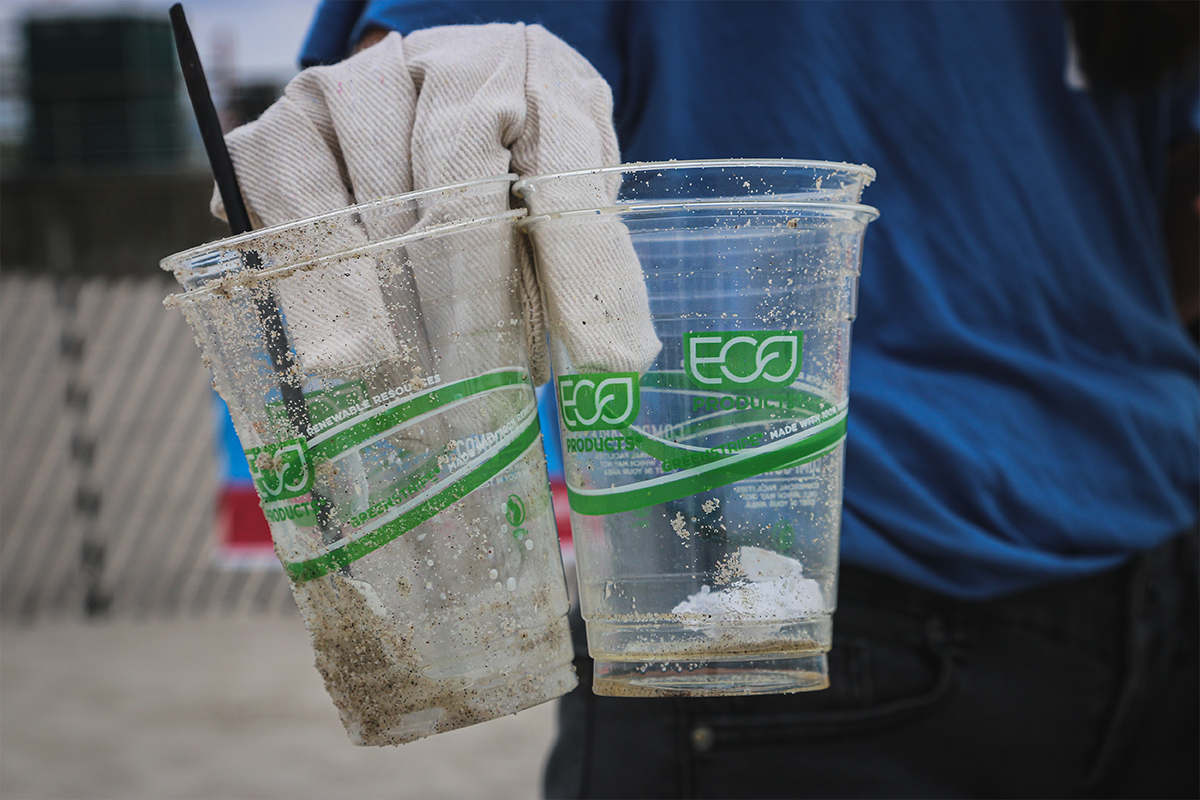Climate change, and the global response to it, is altering the business landscape everywhere.
According to recent Deloitte analysis, rapid global decarbonization could yield an economic dividend of US$43 trillion by 2070, compared to a world of unchecked climate change, which would cost US$178 trillion.
Companies that take meaningful action today and challenge the existing systems underlying their industries will be the ones that thrive in the climate-aligned economy of the future. Securing B Corporation certification is a way to demonstrate to consumers that your company meets high standards of verified performance, accountability and transparency.
The rise of the conscious consumer

Recent research by First Insight shows an overwhelming majority of consumers (88 percent) say that they check the sustainability of a product before at least some purchases. Another study by Capterra found that 61 percent of surveyed consumers consider the sustainability of a product to be important, and most are willing to pay more for sustainable products.
Moving toward operating more sustainably and ethically will only increase in importance as the younger customer base grows older.
As the generations that have grown up hearing discussions about the urgent climate crisis, gen Z and Millennials are leading the movement toward a more climate-aligned future. The First Insights study reported 62 percent of gen Z survey participants and the same number of Millennials say they prefer to buy from sustainable brands, and they are also highly influential on the purchasing choices of their parents and grandparents.
Moving toward operating more sustainably and ethically will only increase in importance as the younger customer base grows older, so it is crucial for companies to establish trust by being transparent about manufacturing processes and demonstrating a continued commitment to improvement in order to remain competitive.
What does being sustainable mean?
From climate action and waste reduction to ethical production practices and reduced inequalities, sustainability is a complex concept that covers a large number of areas. According to the Capterra report, the most important aspects consumers look to when making purchasing decisions are materials and packaging followed by ingredients, recyclability, the product’s origin and transportation.
In addition to the environmental footprint of a product, social impact is also key, since human rights abuses are still prevalent in manufacturing across multiple industries. Even if all the environmental boxes are being ticked, if workers’ rights are being violated, it’s not sustainable.
The International Labor Organization reports that, of the 152 million children in child labor, about 10 million are trapped in modern slavery. Furthermore, in countries like China, Cambodia, India, Sri Lanka and Indonesia, minimum wage actually represents between one-half to one-fifth of the living wage.
Greenwashing and a lack of regulation

While consumers are mostly reliant on information from the companies they buy from as to whether or not a product is sustainable and ethically made, they’re cynical of marketing claims.
Greenwashing is rife across all industries. The truth is that, unfortunately, many companies that lay claim to be doing the right thing are not actively adopting sustainable and ethical practices, and terms such as ‘organic’, ‘recycled’ and even ‘sustainable’ are not often standardized or regulated.
With many companies choosing to produce offshore for economic reasons, supply chains are often shrouded in mystery and, with subcontracting the norm, a complex labyrinth that allows brands to avoid accountability. It’s almost impossible for consumers to know where the products they buy come from, how they’re manufactured and the impact of production socially and environmentally, which, in turn, makes greenwashing difficult to spot.
Establishing consumer confidence
There are an increasing number of accreditation bodies cropping up in a bid to assure consumers that a product or company aligns with their values – from Fair Trade to DoneGood, Cruelty-Free to PETA Approved, Rainforest Alliance to OEKO-TEX. The sheer number of logos out in the marketplace can be confusing to the consumer.
The accreditation that stands head and shoulders above the rest in terms of credibility and comprehensiveness is B Corporation certification.
The accreditation that stands head and shoulders above the rest in terms of credibility and comprehensiveness is B Corporation certification.
B Corporation is a designation that a for-profit business is meeting high standards of verified performance, accountability and transparency on factors from employee benefits and charitable giving to supply chain practices and input materials.
It’s awarded by B Lab, a nonprofit organization, through a lengthy and rigorous process and, once certification has been awarded, there is ongoing work needed year after year to maintain it. There are more than 6,000 Certified B Corporations in more than 80 countries and over 150 industries. On average, it takes a company 12–18 months to complete the certification process, demonstrating further how seriously they take their impact on the world.
How B Corporation status is attained

In order to achieve B corporation certification, a company must:
- demonstrate high social and environmental performance by achieving a B Impact Assessment score of 80 or above and passing the risk review. Multinational corporations must also meet baseline requirement standards
- make a legal commitment by changing their corporate governance structure to be accountable to all stakeholders, not just shareholders, and achieve benefit corporation status if available in their jurisdiction
- exhibit transparency by allowing information about their performance measured against B Lab’s standards to be publicly available on their B Corp profile on B Lab’s website.
The guide to B Corp Certification can help you take inventory of your social and environmental footprint and provide a framework to work toward. It’s important to recognize that some of your goals will be achievable immediately, while others may be goals that take time. Equally, understand that many of the choices you’ll face when working toward becoming more sustainable won’t always be the easiest or the most cost-effective.
As a starting point, establish the practices that you can and commit to working toward as your more ambitious goals as resources, finances and opportunities become available. Build them into your road map for future business practices and remember that any changes toward being more sustainable show a consistent commitment to improving every aspect of your business.
In a time where consumers are increasingly focused on sustainability, there has never been a better time to make the leap.
Tessa Carroll is the Co-Founder of The Common Good Company, an Australian B Corporation clothing brand that provides ethically made blank canvas apparel for businesses to print their merchandise. Some of the businesses and events TCGCo works with include the Triple J Hottest 100, Who Gives A Crap, Bank Australia, Heaps Normal, Yalumba Wines and Laneway Music Festival.







